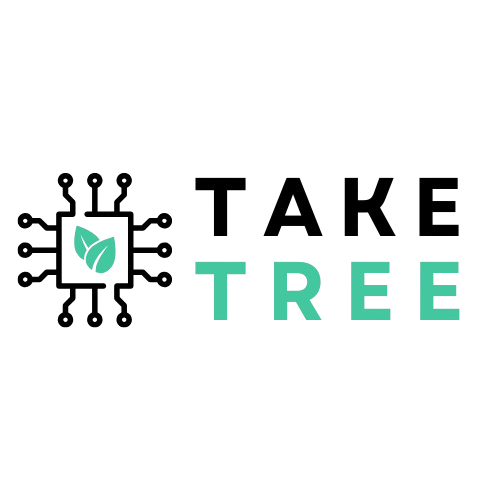
The decision was made after the Crown Commercial Service (CCS), the government’s procurement division, started informing suppliers on Friday, November 17, 2023, of whether or not they had been successful in securing a spot on the £1. 35 billion four Lot framework.
Microsoft is one of 12 cloud providers to have a spot on the framework’s first Lot, which is geared toward people sector IT buyers who want to purchase cloud services directly from the hyperscalers, according to documents provided to Computer Weekly.
The following Lot of the framework is for IT buyers in the public sector who want to directly purchase the services of Lot One providers through a third-party reseller or managed service provider. On that Lot, there are 39 suppliers.  ,
Because of the way the framework is set up, the suppliers in Lot One must give their consent for the Lot Two suppliers to resell their services.
According to Computer Weekly, Microsoft informed CCS in its framework application that no partners would be allowed to resell its services through Cloud Compute 2, which has led to the banishment of at least a few pure-play Microsoft resellers partners.
Computer Weekly understands that Microsoft partners who are allowed to resell the services of another hyperscale cloud providers who have a spot on Lot One may also participate in Cloud Compute 2, but they will also be prohibited from doing so.
Given the amount of money they have invested over the years to become a professional Microsoft cloud partner, one of the affected partners, who spoke to Computer Weekly under the condition of anonymity, described the turn of events as “disheartening.”  ,
According to the source,” By saying no, Microsoft has effectively eliminated their whole distribution network and partner channel, defeating the purpose of the framework, which was ostensibly intended to be more SME friendly.”
” We’ve put a lot of time and effort into applying to join the framework and to become an extremely accredited Microsoft partner in the first place, and it’s all gone to waste because they only said no,” 
Cloud Compute 2 is n’t working anymore.
The procurement process has now entered what is known as a halt period, which usually lasts 10 calendar days, and is scheduled to end on Monday, November 27, for this specific framework. CCS has informed the suppliers who have reserved space on Cloud Compute2.
Suppliers are encouraged to object to the contract award decision during this time, and Computer Weekly is informed that Microsoft partners have already requested that CCS overturn the decision.
In a copy of the response seen by Computer Weekly, the CCS response to these appeals suggests that the government’s hands are tied because Microsoft has exercised its right to forbid second parties from reselling its services in accordance with the terms and conditions set forth by the framework.
” Please confirm that you permit the resale of your services in Lot Two,” said Lot 1 Bidders. According to CCS’s response, Lot One bidders were allowed to respond” No” to this question without it having an impact on their bid.
” You have been unsuccessful in your bid, as your named Lot One Cloud Service Supplier selected” No” in response to this question.
The response ended,” We understand that this is unpleasant news, but the decisions regarding your exclusion are in accordance with the Award Process for Lot Two.”
The source continued,” Perhaps Microsoft does n’t realize the seriousness of what they’ve done, but from their perspective, it’s an entirely stupid decision because I’m sure they have a portion of their business that is strongly motivated to sell into the public sector, and they prevented their partners from helping with that.”
Another source, who is well-versed in the Cloud Compute 2 framework, referred to it as” the tender from hell” and said that any supplier who did take the time to apply for it must have been especially motivated to bid, which will only serve to further depress Microsoft’s decision.
Regarding this, Computer Weekly published a report in August 2023 about complaints made by government IT suppliers about how challenging and time-consuming the Cloud Compute 2 application process seemed to be, especially for SME suppliers.
It’s quite astounding, and Microsoft typically only cares about its resellers, so it really does n’t make any commercial sense, the source continued.” Resellers are its preferred route into the public sector.
Because of this, there is a general consensus among the Microsoft partners that the decision to forbid them from reselling the company’s services through Cloud Compute 2 may have been erroneous.
We believe it to be a submission error on Microsoft’s part, but in the end, CCS would have double-checked with Microsoft. Another source, who works for a public sector procurement consultancy, said,” I’ve seen that happen many times.
In fact, Computer Weekly has been informed of instances where CCS has contacted possible suppliers to double-check their framework applications after a human error or an online tender system bug produced an unexpected outcome.
Since CCS contacted them on Friday, November 17, to inform them that their framework application had failed, another damaged partner, who spoke to Computer Weekly under the condition of anonymity, claimed that they had constantly tried to bring up the problem privately with Microsoft to little avail.
According to the source,” We’ve been attempting to escalate the situation within Microsoft to see if they comprehend what they have done, and trying to reach the appropriate Microsoft employee who would understand the impact this will have on the public sector, in the hope that they will approach CCS to request permission to revise their submission.”
It might not be possible for anything to change before the stalemate period is over, but it would be in their best interests to do so because they want this framework to succeed.” I’m never certain CCS would let them change their response.
Especially because data from Computer Weekly that was originally shared suggested that the framework’s initial iteration, which went live in May 2021 and is scheduled to expire in may 2024, was not widely used by the public sector because it was “impossibly difficult to use,” according to one source.
It is doubtful that CCS will permit the tech giant to have a do-over of its submission if an error has occurred, according to the general consensus among the Microsoft partners and government procurement experts Computer Weekly spoke to for this article.
It will be nearly impossible to reopen the procurement process without holding a full competition once, which would be an additional time and cost whammy for all parties involved, if it was cock-up rather than Microsoft actually turning its back on its SME resellers, according to an expert.
When Computer Weekly asked CCS for comment on this story, it was informed that the stalemate period would prevent it from being discussed. As required by the Public Contracts Regulations 2015, we are not permitted to speak with outside parties about the expected outcomes of this procurement until it has been completed, according to a spokesperson for the organization.
Microsoft added that it was unable to offer any commentary.


